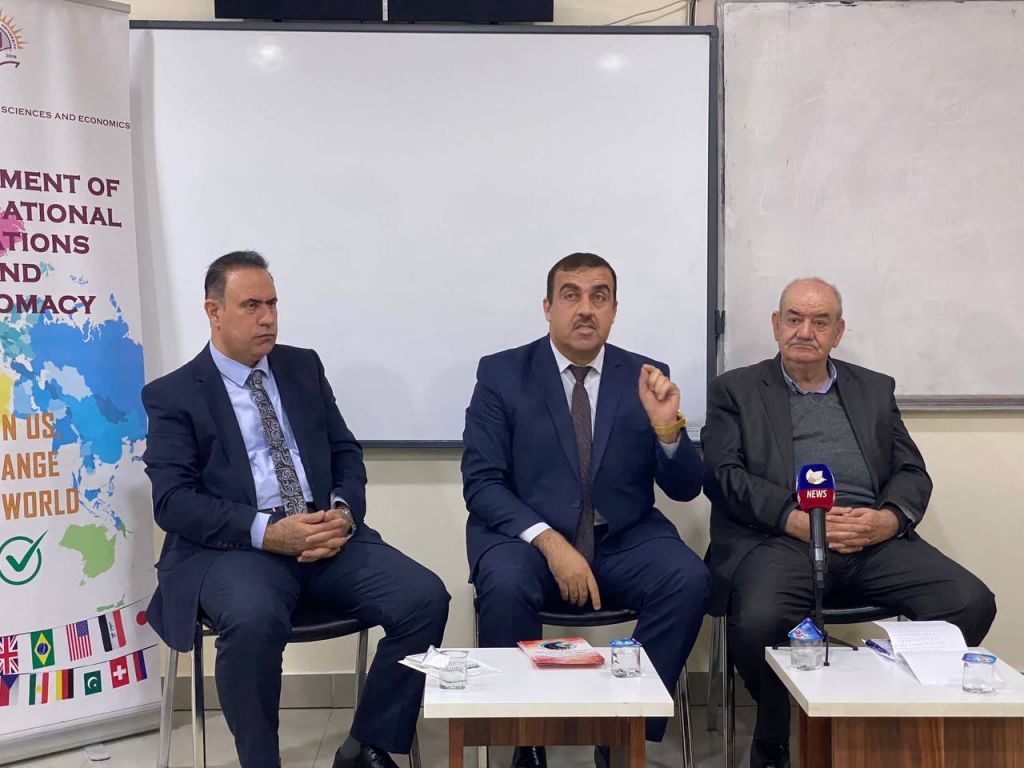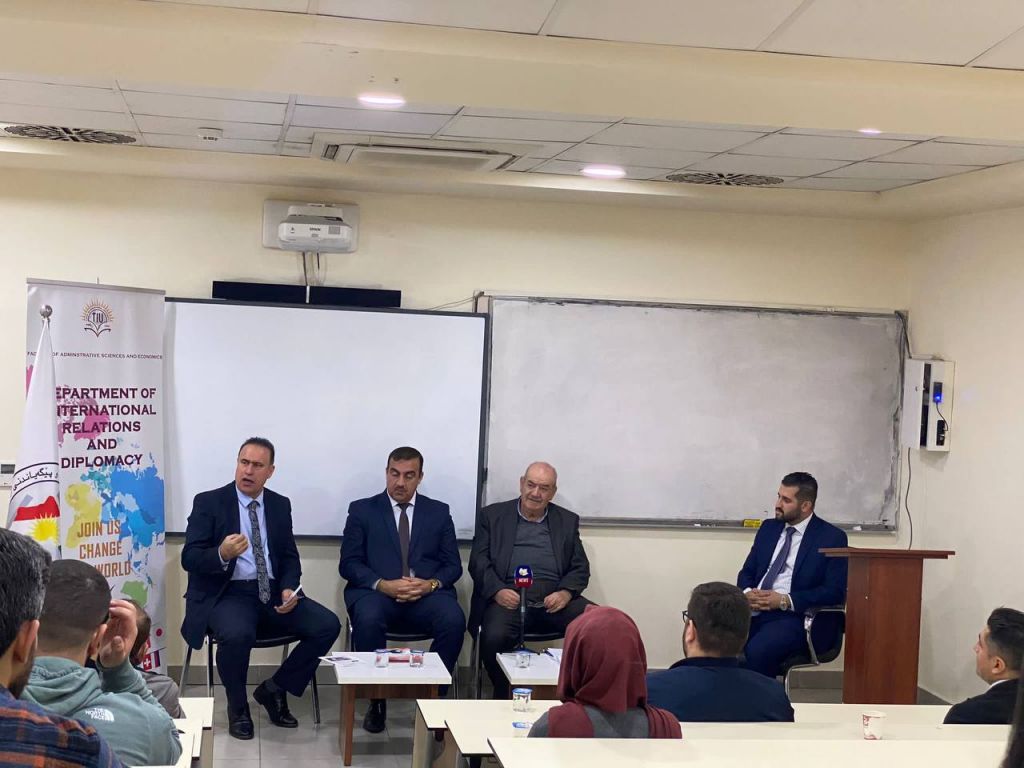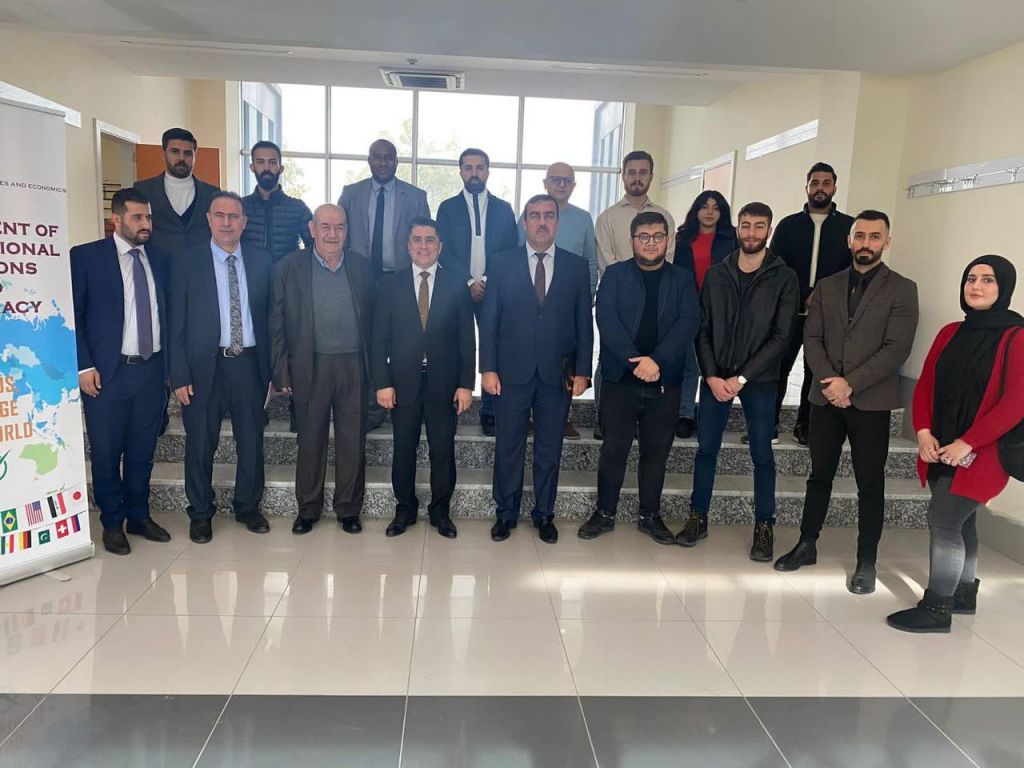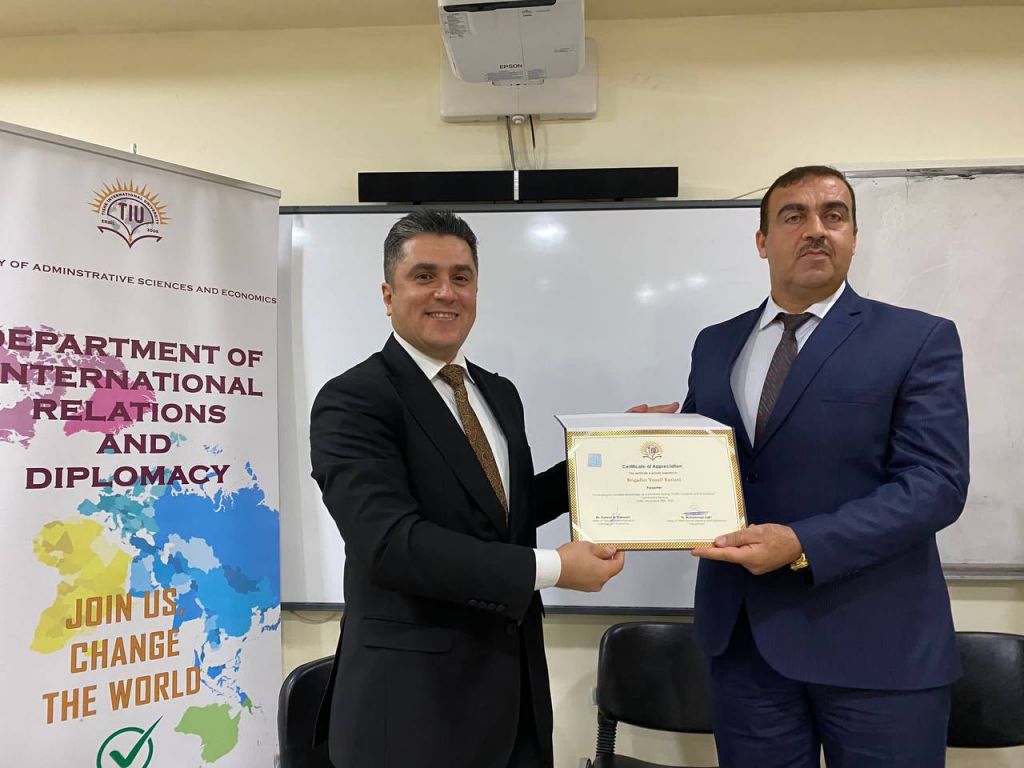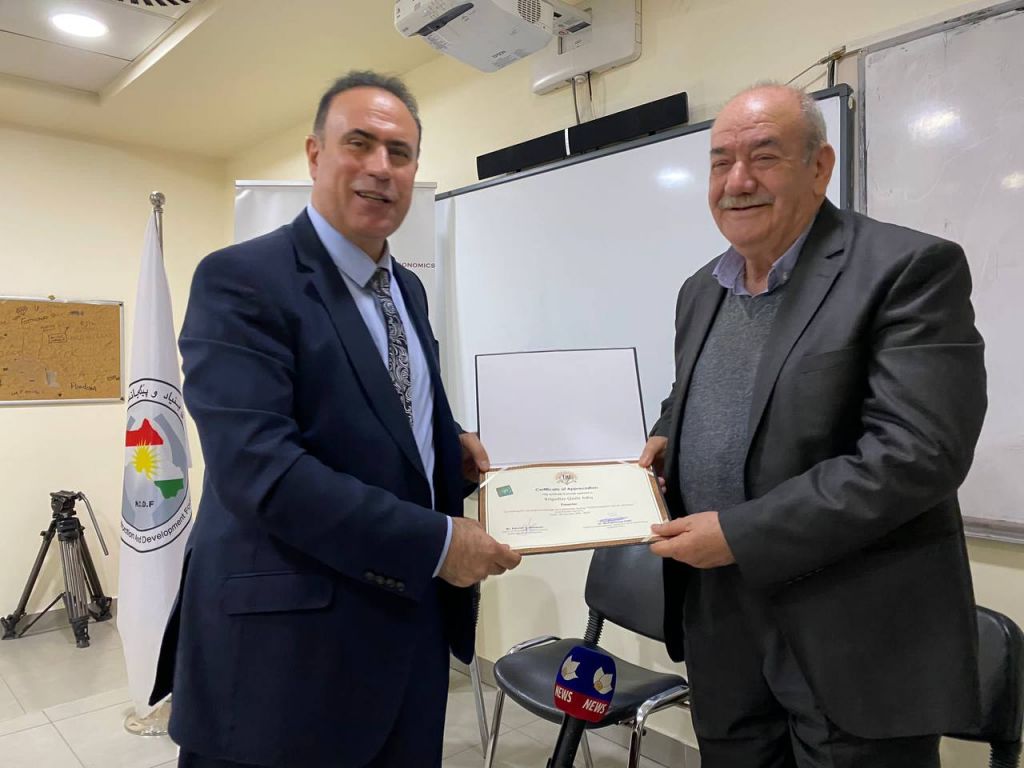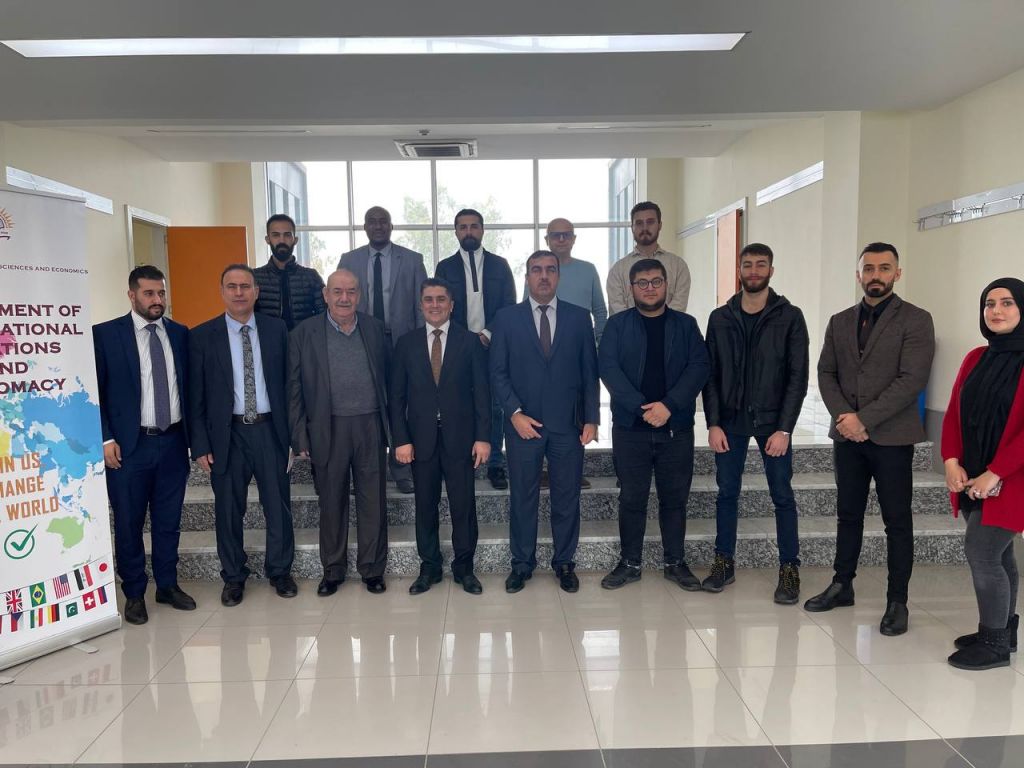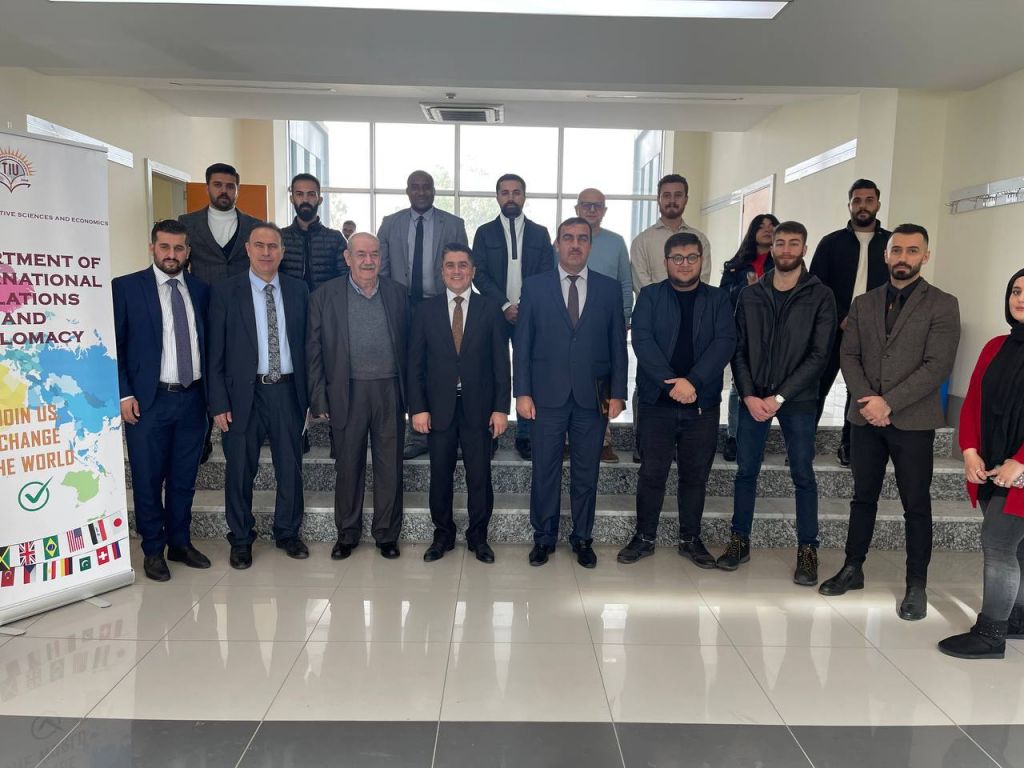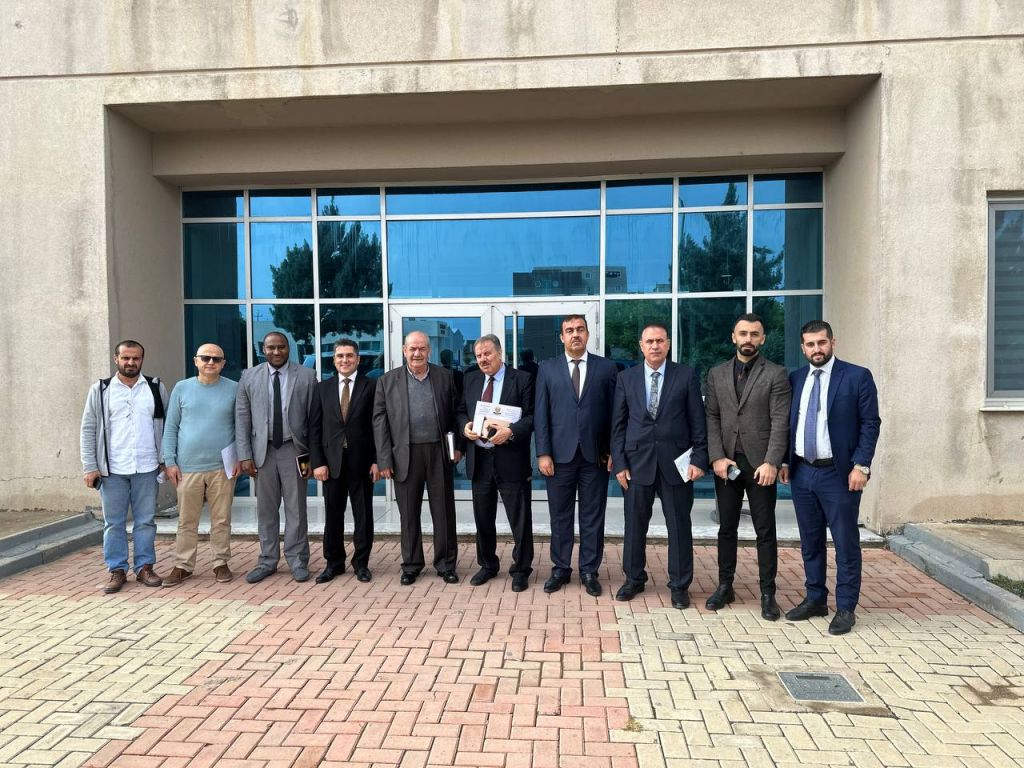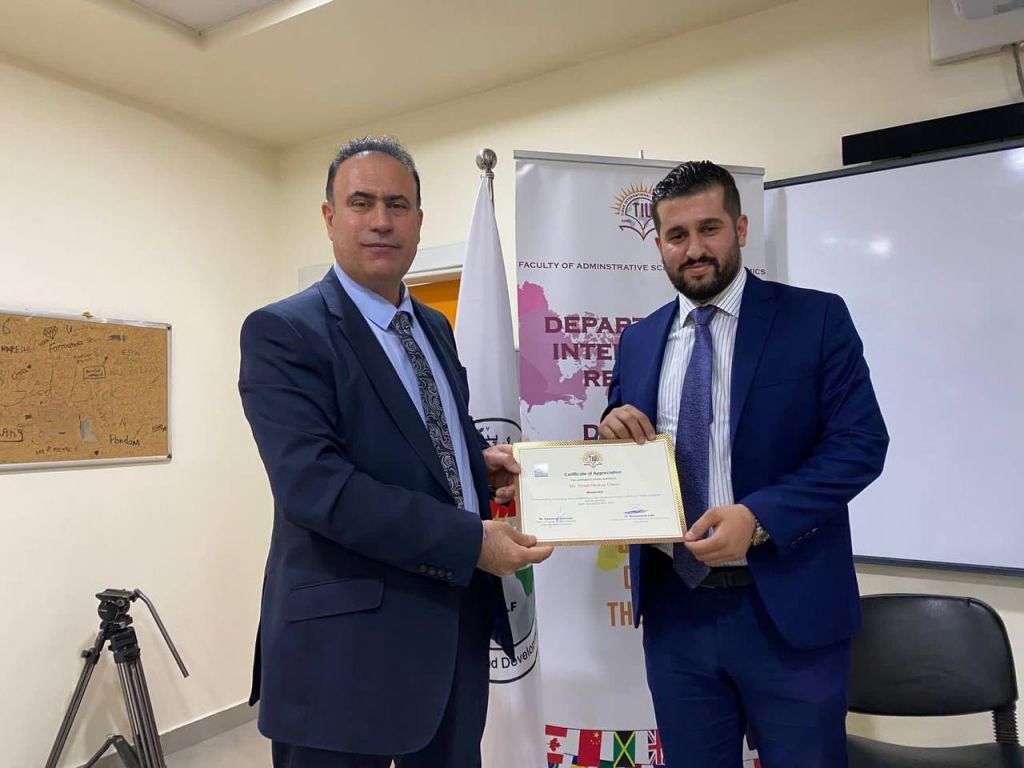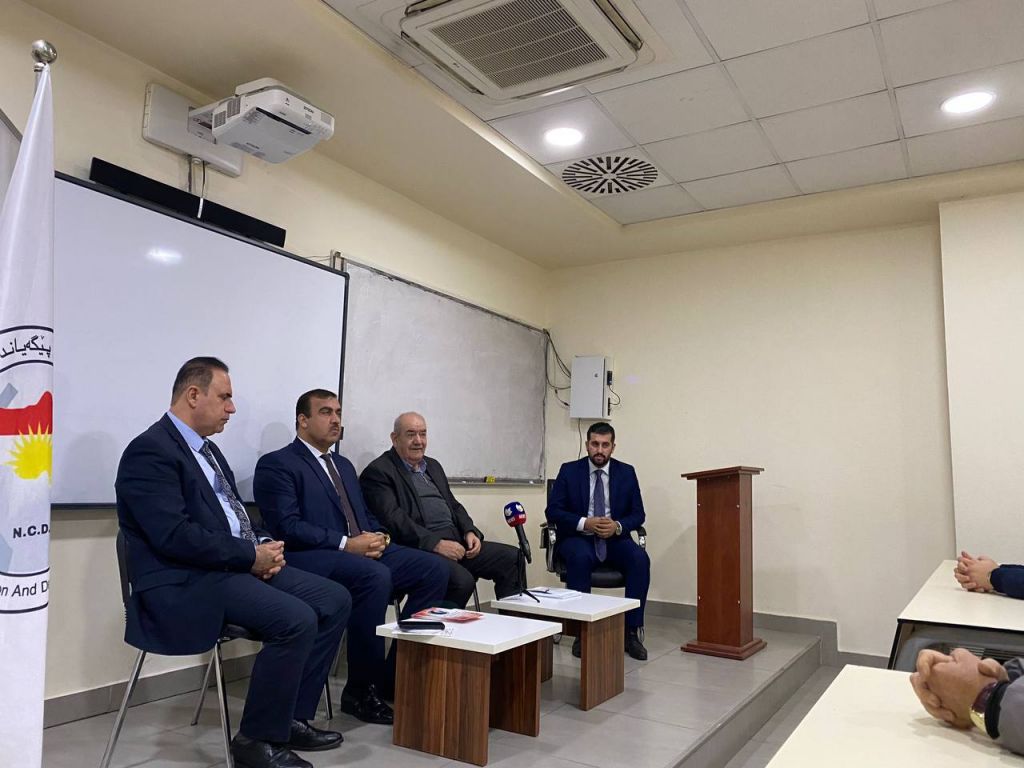Community Service Panel on Traffic Incidents: The Problems and Solutions
In collaboration with the National Construction and Development Foundation, the Department of International Relations and Diplomacy, Faculty of Administrative Sciences and Economics at Tishk International University, organised a community service panel on ‘Traffic Incidents: The Problems and Solutions’ in the Kurdistan Region, Iraq, held on November 30th, 2022. The panel consisted of three distinguished speakers, Brigadier Qader Sadiq (Traffic Police Officer), Brigadier Yousif Baziani (Traffic Police Officer), Dr. Mohammad Salih Mustafa (Head of IRD Department), and Mr. Firsat Shakur Omer acted as the moderator. The panel discussion began with a welcome address by Mr. Armand Mohamad Majed, President of the National Construction and Development Foundation.
The speakers identified the causes of traffic incidents or car accidents in the Kurdistan Region to include lack of awareness of traffic rules/laws, poor infrastructure, especially outside the city, reckless driving, distracted driving, stressful and psychological factors, ease of securing a license, lack of uniform licensing system, lack of compliance with the rules, lack of severe punishment for traffic rules offenders, and poor maintenance of cars. One of the speakers stated that statistics show that 3000 people die every day, and 36 000 die globally from road-related accidents. In the Kurdistan Region alone, findings show that 800 people die and 11 000 get injured yearly due to road accidents.
The speakers made the following recommendations as a way forward:
- There should be a bottom-up approach in place so that people are enlightened about traffic rules, the need for compliance, and the dangers of reckless driving from kindergarten to the tertiary level of education. This is to be included in the curricula of all schools.
- Amendment of existing traffic rules/laws in order to make the punishment for offenders more severe, which will help in deterring them and others from violating traffic rules/regulations.
- Societal reorientation and enlightenment by the mass media, such as radio, television, social media, etc.
- Construction of good roads and repair of bad ones to make them more motorable.
- Inculcation of ethical values and morals in individuals from the family to the last level of human socialisation.
- The process of obtaining a license should also become more strict to ensure that only those who are mentally and physically fit to drive are licensed.


